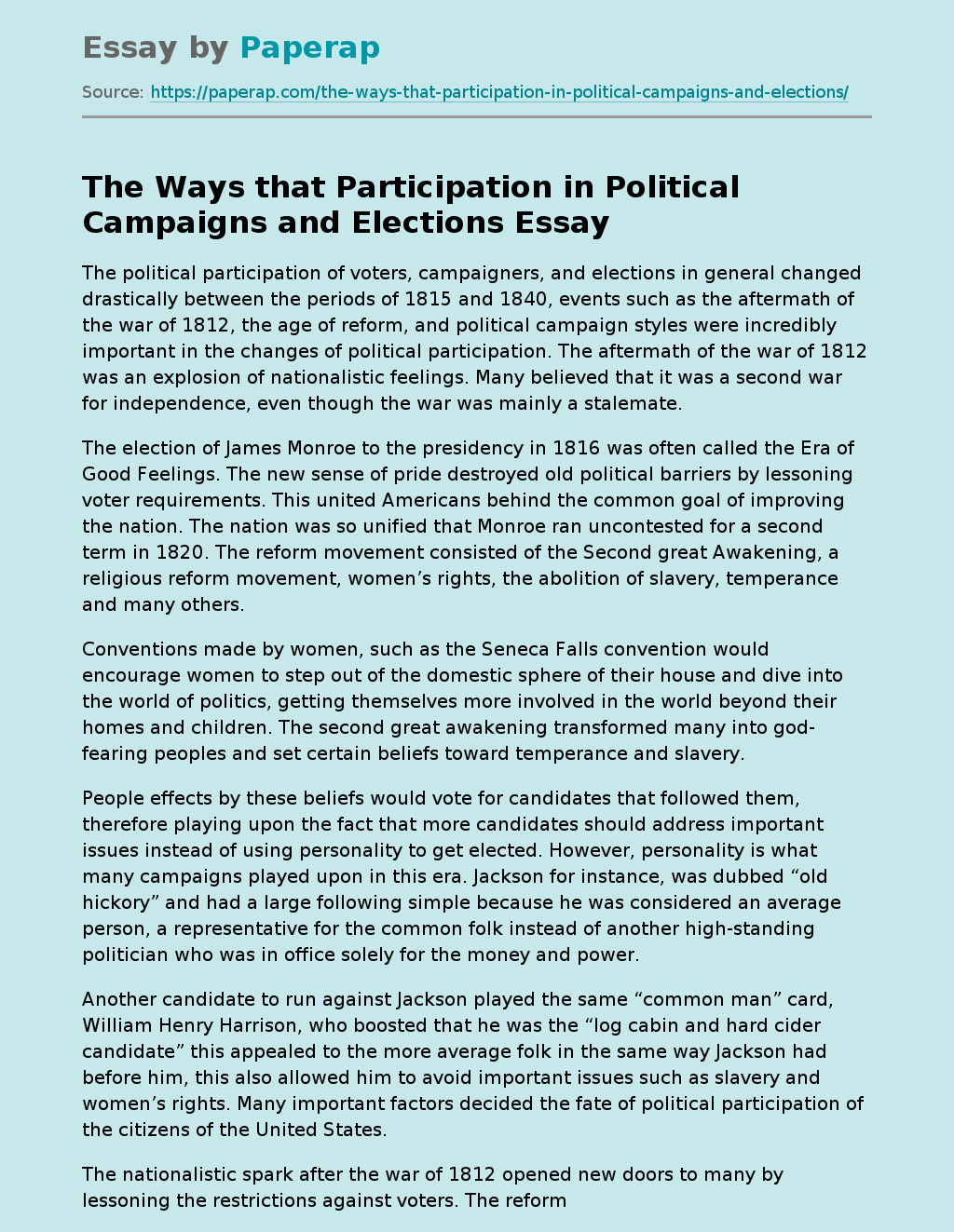The Ways that Participation in Political Campaigns and Elections
The political participation of voters, campaigners, and elections in general changed drastically between the periods of 1815 and 1840, events such as the aftermath of the war of 1812, the age of reform, and political campaign styles were incredibly important in the changes of political participation. The aftermath of the war of 1812 was an explosion of nationalistic feelings. Many believed that it was a second war for independence, even though the war was mainly a stalemate.
The election of James Monroe to the presidency in 1816 was often called the Era of Good Feelings.
The new sense of pride destroyed old political barriers by lessoning voter requirements. This united Americans behind the common goal of improving the nation. The nation was so unified that Monroe ran uncontested for a second term in 1820. The reform movement consisted of the Second great Awakening, a religious reform movement, women’s rights, the abolition of slavery, temperance and many others.
Conventions made by women, such as the Seneca Falls convention would encourage women to step out of the domestic sphere of their house and dive into the world of politics, getting themselves more involved in the world beyond their homes and children.
The second great awakening transformed many into god-fearing peoples and set certain beliefs toward temperance and slavery.
People effects by these beliefs would vote for candidates that followed them, therefore playing upon the fact that more candidates should address important issues instead of using personality to get elected. However, personality is what many campaigns played upon in this era.
Jackson for instance, was dubbed “old hickory” and had a large following simple because he was considered an average person, a representative for the common folk instead of another high-standing politician who was in office solely for the money and power.
Another candidate to run against Jackson played the same “common man” card, William Henry Harrison, who boosted that he was the “log cabin and hard cider candidate” this appealed to the more average folk in the same way Jackson had before him, this also allowed him to avoid important issues such as slavery and women’s rights. Many important factors decided the fate of political participation of the citizens of the United States.
The nationalistic spark after the war of 1812 opened new doors to many by lessoning the restrictions against voters. The reform movement gave people issues to look for a solution to in politicians and candidates. Lastly, the campaigns themselves made a drastic change, depending mostly on the personality of the candidate instead of their views on the current events of the time.
The Ways that Participation in Political Campaigns and Elections. (2019, Dec 05). Retrieved from https://paperap.com/the-ways-that-participation-in-political-campaigns-and-elections/

